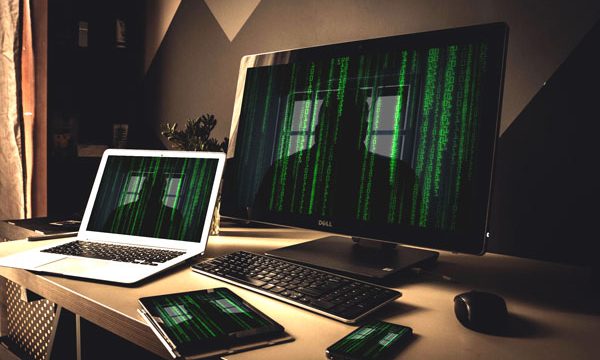
IoT Security & Privacy Conference 2019
This event was sponsored by UCI’s Cybersecurity Policy and Research Institute (cpri.uci.edu) and UCI’s Institute for Software Research (isr.uci.edu) features a special keynote by Professor Kevin Fu from the University of Michigan, followed by faculty presentations, a panel discussion and a research showcase.
Watch the Videos
IoT Security & Privacy Conference 2019
This Free Event, sponsored by UCI’s Cybersecurity Policy and Research Institute (cpri.uci.edu) and UCI’s Institute for Software Research (isr.uci.edu) features a special keynote by Professor Kevin Fu from the University of Michigan, followed by faculty presentations, a panel discussion and a research showcase.
Researcher Spotlight: Qi Alfred Chen
Researcher Spotlight: Zhou L
Researcher Spotlight: Joshua Garcia

UCI CPRI & Atlantic Council:
Invitation to Participate
Crisis Dynamics and Cyber Statecraft: Simulating Cross-National Perspectives
September 25, 2018
Donald Bren Hall, UCI Campus
9:00am-12:00pm
Space is limited for this event.*
The UC Irvine Cybersecurity Policy & Research Institute (CPRI) is proud to announce – in partnership with the Atlantic Council and the Marine Corps University Foundation – a 1/2-day crisis simulation exercise critical to increase understanding, by governments, police forces, and businesses, of how states use offensive cyber capabilities, alongside more traditional instruments of statecraft, to manage crises and further their national interests. For businesses, this exercise will enhance understanding of how nation-state cyberwarfare may affect them. All attendees will be able to participate – through scenario focus groups – in the decision-making process and outcome.
Data Breach, Privacy, and Cyber Insurance: How Insurance Companies Act as “Compliance Managers” for Businesses
While data theft and cyber risk are major threats facing organizations, existing research suggests that most organizations do not have sufficient protection to prevent data breaches, deal with notification responsibilities, and comply with privacy laws. This article explores how insurance companies play a critical, yet unrecognized, role in assisting organizations in complying with privacy laws and dealing with cyber theft.
Read More > Talesh-2018-Law_Social_Inquiry Cyber
INSURANCE COMPANIES AS CORPORATE REGULATORS: THE GOOD, THE BAD, AND THE UGLY
Political scientists, economists, and legal scholars have been debating corporate social responsibility for decades. To that end, the financial crisis, fraud relating to Enron and Worldcom, Occupy Wall Street, and even the 2016 presidential primary debates all raise attention and concern about what corporate social responsibility is and should be in the United States.
Read More > Talesh DePaul Cyber Insurance
ICS Researchers Introduce Thermanator, Revealing a New Threat to Using Keyboards to Enter Passwords and Other Sensitive Information

A thermal image of “iloveyou” 20 seconds after entry.
After entering a password, your regular computer keyboard might appear to look the same as always, but a new approach harvesting thermal energy can illuminate the recently pressed keys, revealing that keyboard-based password entry is even less secure than previously thought. Computer Science Ph.D. students Tyler Kaczmarek and Ercan Ozturk in the Donald Bren School of Information and Computer Sciences (ICS), working with Chancellor’s Professor of Computer Science Gene Tsudik, have exploited thermal residue from human fingertips to introduce a new insider attack — the Thermanator.
Gene Tsudik, Two Computer Science Ph.D. Students Develop Novel De-Authentication Prototype
 Chancellor’s Professor of Computer Science Gene Tsudik and two of his Ph.D. students, Tyler Kaczmarek and Ercan Ozturk, have developed a novel technique aimed at mitigating “Lunchtime Attacks.” Such attacks occur when an insider adversary takes over an authenticated state of a careless user who has left his or her computer unattended. Tsudik, Kaczmarek and Ozturk have come up with an unobtrusive and continuous biometic-based “de-authentication,” i.e., a means of quickly terminating the secure session of a previously authenticated user after detecting that user’s absence. They introduce the new biometric, called Assentication, in a paper appearing at the 2018 International Conference on Applied Cryptography and Network Security (ACNS).
Chancellor’s Professor of Computer Science Gene Tsudik and two of his Ph.D. students, Tyler Kaczmarek and Ercan Ozturk, have developed a novel technique aimed at mitigating “Lunchtime Attacks.” Such attacks occur when an insider adversary takes over an authenticated state of a careless user who has left his or her computer unattended. Tsudik, Kaczmarek and Ozturk have come up with an unobtrusive and continuous biometic-based “de-authentication,” i.e., a means of quickly terminating the secure session of a previously authenticated user after detecting that user’s absence. They introduce the new biometric, called Assentication, in a paper appearing at the 2018 International Conference on Applied Cryptography and Network Security (ACNS).





